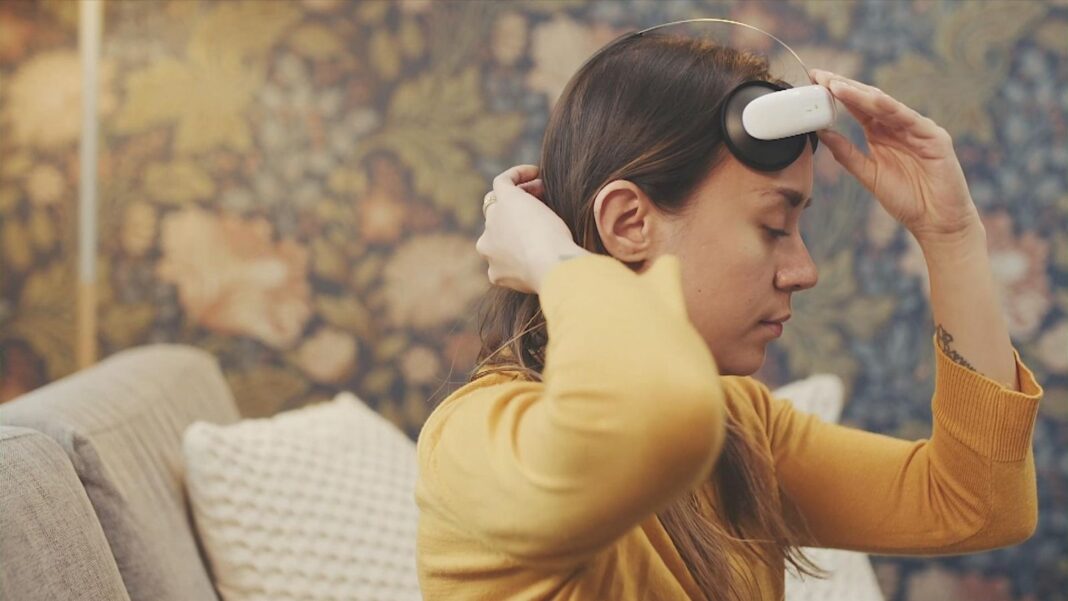An electric headset for treating depression has been recommended as a more widespread treatment for depression after a successful NHS trial. But it’s not yet known what the long term benefits of the device are.
An NHS trial has found that an innovative electric headset for treating depression is an effective way of reducing the symptoms, and has recommended its more widespread use within the health service.
The headset from Flow Neuroscience was given to patients with depression by their GP to wear for 30 minutes daily for a period of six weeks, as a non-invasive way to manage the condition.
The study found that it was an “effective depression treatment”, by using a brain stimulation technique known as transcranial direct current stimulation, or tDCS.
The device delivers a weak direct electrical current to the front of the brain, to stimulate the areas responsible for emotional expression.
The research found over 58% of people saw improvements within six weeks, and one in three went into remission with no depression symptoms.
Flow Neuroscience says it’s the “first and only medically approved at home treatment for depression”, and it can be used alongside other therapies like talking therapies or drugs.

It was trialled on patients by Northamptonshire NHS Foundations Trust, but it can also be bought privately for £399.
One of those patients is James Maynard, who has struggled with depression prior to using the headset.
He told Sky News: “I was just so low, I didn’t really have any goals and would just go through the emotions of day-to-day life.
“Going to work, coming home from the children, going to sleep. If I could sleep.”
After just a few weeks of wearing the device every day for 30 minutes, he says his symptoms noticeably improved.
“I was starting to sleep a bit better. The wife even said I was happier. I wasn’t waking up grumpy. So there was obviously something happening.”

James Maynard, who has struggled with depression and is using the headset
One of the NHS Trial Leads is Dr Azhar Zafar, who told Sky News that patients report having to use fewer medications as a result of the device.
He says: “It’s a new option because for years and years, we will have only the option of medication or a cognitive behavioural therapy. This method of treatment is an additional treatment.”
It’s not yet known, however, what the long term benefits of the device are on depression past six weeks.
Read more on Sky News:
Forest bathers turn to ecotherapy
Tory candidate sorry for date rape drug joke
Athlete overtaken while celebrating early

Keep up with all the latest news from the UK and around the world by following Sky News
GP Dr Anita Raja told Sky News that “when it comes to mental health one of the most important things is understanding what the relapse of the patient may be once the treatment stops or is withheld”.
She says this device is promising, but she wants to know “what happens when the patient stops using the device – do they become depressed again?”.







